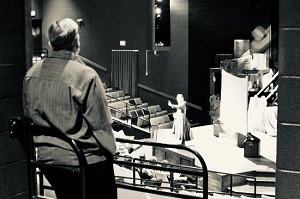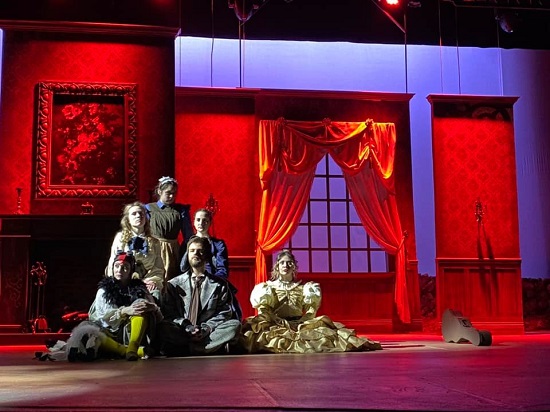
A Rumination about The Moors as the world changed under my feet.
HULDEY: I am very. very. unhappy.
The Moors by Jen Silverman
AGATHA: Is that so.
HULDEY: Yes it is, it is so now, and it has always been so.
AGATHA: That doesn’t make you special.
HULDEY: …What?
AGATHA: Everybody is very very unhappy, Huldey. It is simply what things are. The land is bleak and the house is large and there is no language for all the things lurking within us, no matter how much we write in our diaries, and we are all quite unhappy. So what.
It’s been quite awhile since I’ve written a Rumination.
After This Random World went to regionals, I was onto my next projects. I attended a writers retreat under the shadow of the coronavirus which had descended on Seattle three hours away. The undertow of our conversations were always pulled back to the virus. We struggled to stop shaking hands and instead bump elbows or do Namaste hands.
I returned home a week before spring break. That time was spent in a strange tension of being told to run business as usual, but it could change at any moment. No knew how it might change but to be ready for whatever that was.
The department’s production of The Moors opened that Thursday and it closed immediately on Friday when the governor ordered limits on the size of public gatherings.
I saw the Friday performance and have been haunted by it since. Since the students were told not to return. Since the classes were put online. Since the campus was closed to non-essential personnel.
I remember less than 100 of us scattered in the 400-seat theatre that night. The hall held a weird vibe. Not the usual, ebullient energy that crackles before a performance. Mainly the loyal guard occupied the stalls: alumni, students, patrons who have supported the theatre for decades. They murmured to each other. I spoke to one of the grad students about her plans for the future which included study abroad and attending the Edinburgh Fringe (which has since been canceled).
The lights dimmed and she stepped on stage for the land acknowledgement. That the university stands on Nez Perce lands and that we thank them for their stewardship past, present, and future. And another shift of the lights and The Moors began its tale of loneliness and the transient nature of life and how easy people’s intentions can get swallowed up in the surrounding harsh terrain.
As the company performed their second show and also their final show. I was reminded that it’s the final show of the school year. The department had canceled the next show too because no one knew what would happen next or how long this would last. Several of the students on stage suddenly found themselves in the last performance of their academic careers. Everything just stopped.
The Moors is a world of juxtapositions where beauty is terrifying and to be strong is to be cruel. The most human creatures are the animals in the story, a mastiff and moor-hen. The setting is in and around an ancient mansion or rather than a mansion, a single room which is repurposed for every other room. It is the parlor, the second sitting room, the guest bedroom, amongst others. Soon that would happen to the residences of some of us sent to work at home.

The scullery maid’s typhus cough reminded me of the virus moving through our world. It reminded me of plagues of the past shutting down theatres.
The characters struggle to define what is within them as we struggled to come to terms with what was happening around us. To find a narrative to hang it all on. Then the lights were up. And it was us in the audience and us on the stage staring at each other as we were pushed into this new existence unsure of what was next.
Then we surged to our feet to meet the actors already on theirs. They looked startled by the motion. It happened without hesitation. That wave of affection. The last group hug. The last time we were all together. The cast vanished into the wings.
We’ve been living on the moors since.
MARJORY: Everything shall always be different now. And yet nothing changes—
The Moors by Jen Silverman